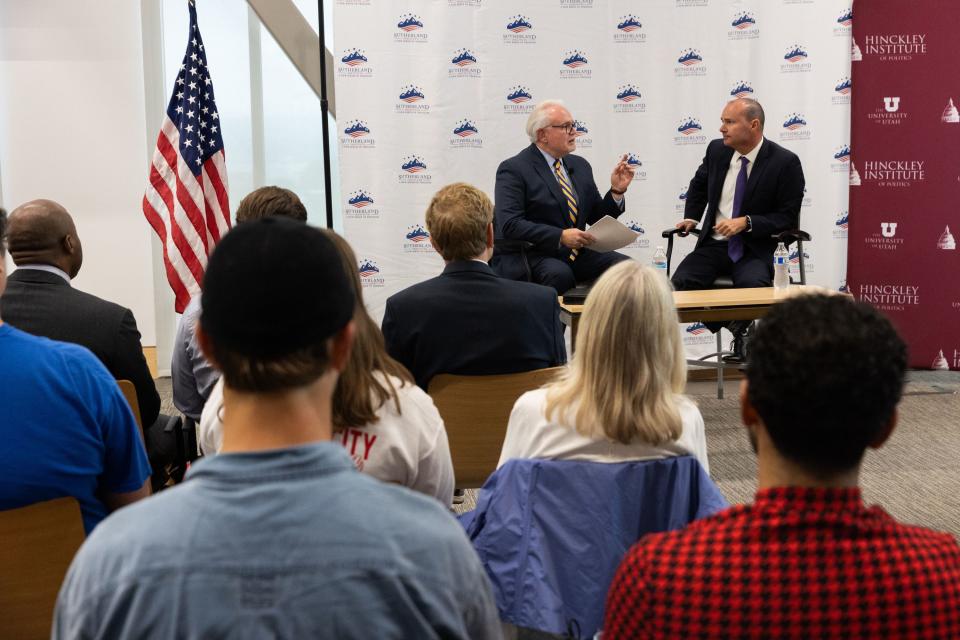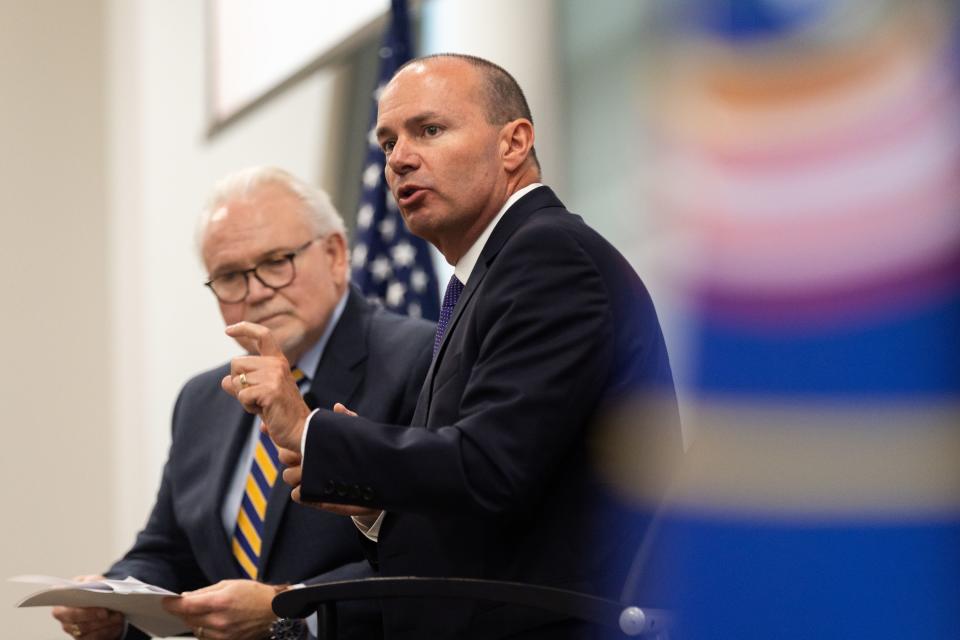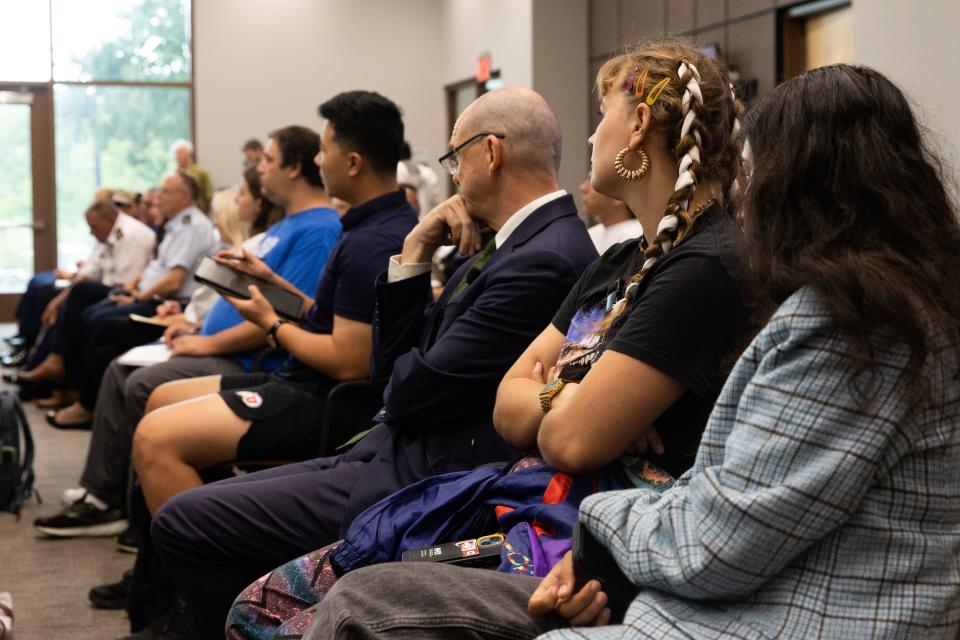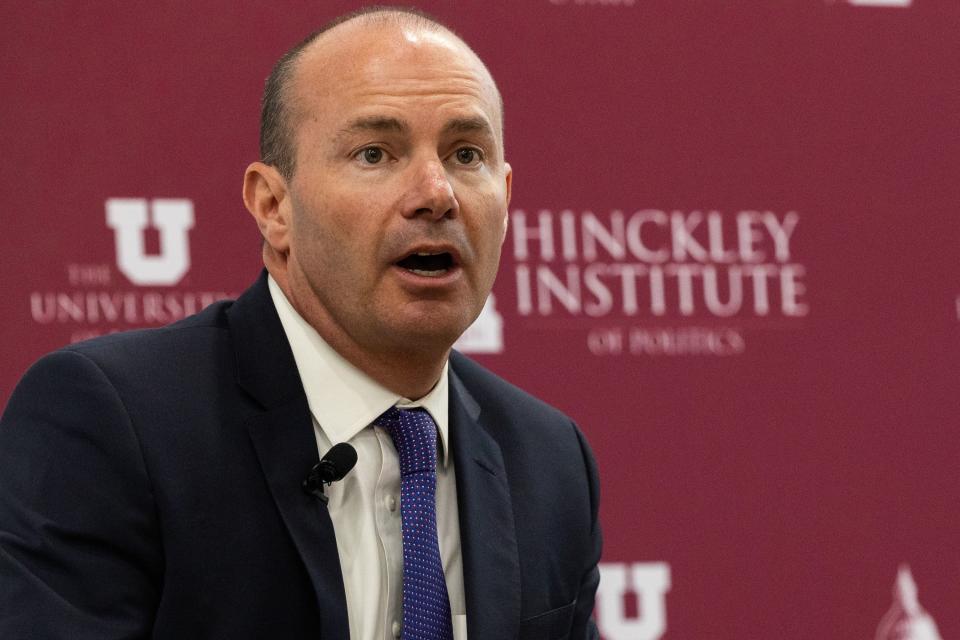Sen. Mike Lee wants to restrain the administrative state — aka ‘the swamp.’ Here’s how
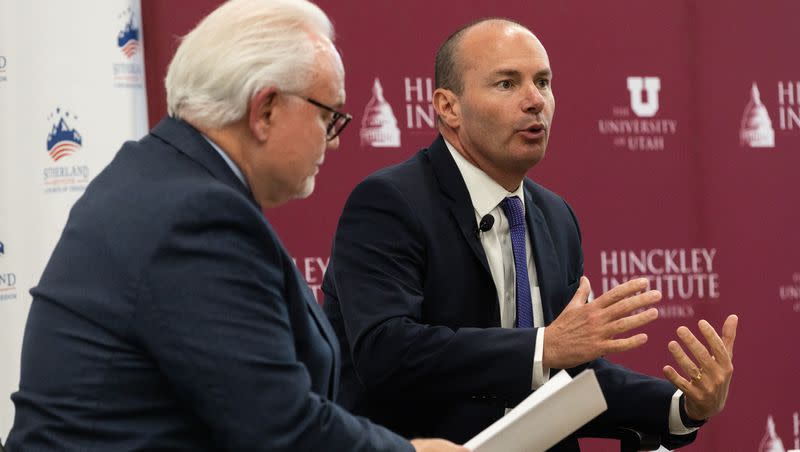
- Oops!Something went wrong.Please try again later.
- Oops!Something went wrong.Please try again later.
- Oops!Something went wrong.Please try again later.
- Oops!Something went wrong.Please try again later.
- Oops!Something went wrong.Please try again later.
Sen. Mike Lee says he has two stacks of papers in his office — a short stack, from a few 100 up to 1,000 pages high, of the laws passed by Congress in a given year. The second stack reaches upward of 13 feet tall, and is the Federal Register, or, as Lee said, “the annual cumulative index of federal regulations.”
Speaking at the Hinckley Institute of Politics at the University of Utah, where he participated in a Q&A with Sutherland Institute President Rick Larsen, Lee said the two stacks provide a visual representation of what he considers one of the most serious problems plaguing Washington, D.C. — Congress has ceded its power to write laws to “unelected bureaucrats,” or what some Republicans have come to refer to as “the swamp.”
To be clear, Lee didn’t use the word “swamp,” which, in addition to the bureaucracy, can refer to lobbyists and other power brokers in the nation’s capital. Lee said — twice — that he did not blame federal employees for the power delegated to them. Instead he placed the blame squarely on Congress, and said it was a “bipartisan” problem.
The Founding Fathers made Congress “the most dangerous branch,” Lee said, because of its lawmaking power, so they also made it accountable to voters every two years.
“This is about accountability, and it’s about liberty in the purest sense — what it means to live in a free country. What it means to live in a system in which your government operates pursuant to democratic principles, (which) means that those who make your laws should be elected and accountable through an election,” said Lee, a Republican who represents Utah.
Lee has cosponsored legislation called the REINS Act — or the Regulations from the Executive in Need of Scrutiny Act — to try to shift lawmaking power back to Congress.
The REINS Act would require Congress to approve rules passed by executive agencies that have more than a $100 million impact on the economy.
Language from the REINS Act was almost included in the debt limit deal that passed Congress earlier this year, but it was removed in final negotiations, which is one of the reasons Lee opposed the final bill.
As an example of what can happen when rule-making authority is left to federal agencies, Lee shared how he asked the Congressional Research Service how many federal criminal laws there are.
“The answer that came back was stunning. They said that the answer is both unknown and completely unknowable, but that there are at least 300,000 federal criminal offenses on the books. And their explanation was revealing as to why it’s unknown and unknowable. ... They said a lot of these crimes are made not by statute, but by federal regulation issued by an executive branch agency,” he said.
Lee: ‘The law firm of Schumer, McConnell, McCarthy and Jeffries’
Sporting a new, shorter hairstyle — which one audience member commented on as he entered the room — Lee also took a moment to explain why he sometimes breaks with his own party’s leadership in the Senate.
He said there are two trends in Congress he finds “disturbing” across party lines.
The first, he said, is the “consolidation of power” in the federal government, as lawmakers in Washington, D.C., pass laws in areas once within the purview of state or local governments and as Congress passes power along to federal agencies.
The second trend, Lee said, is members of Congress “behave as if they worked for the legislative party leaders in their respective houses of Congress,” rather than voters.
“I’m referring, of course, to what I sometimes have described as the law firm of Schumer, McConnell, McCarthy and Jeffries,” he said, mentioning the last names of the four leaders of the two chambers — Senate Majority Leader Chuck Schumer, D-N.Y.; Senate Minority Leader Mitch McConnell, R-Ky.; House Speaker Kevin McCarthy, R-Calif.; and House Minority Leader Hakeem Jeffries, D-N.Y.
Lee said the diversity of opinions within the parties and between the parties represented “sincere disagreements” among the electorate.
“There is a lot of nuance in the law. There are a number of areas that are not necessarily staked out as either Republican or Democratic territory,” he said.
But Lee said he doesn’t think the disagreement in Congress is “nearly as bad as it appears.”
“I can’t think of a single Democratic colleague I have who I don’t really like,” he said.
